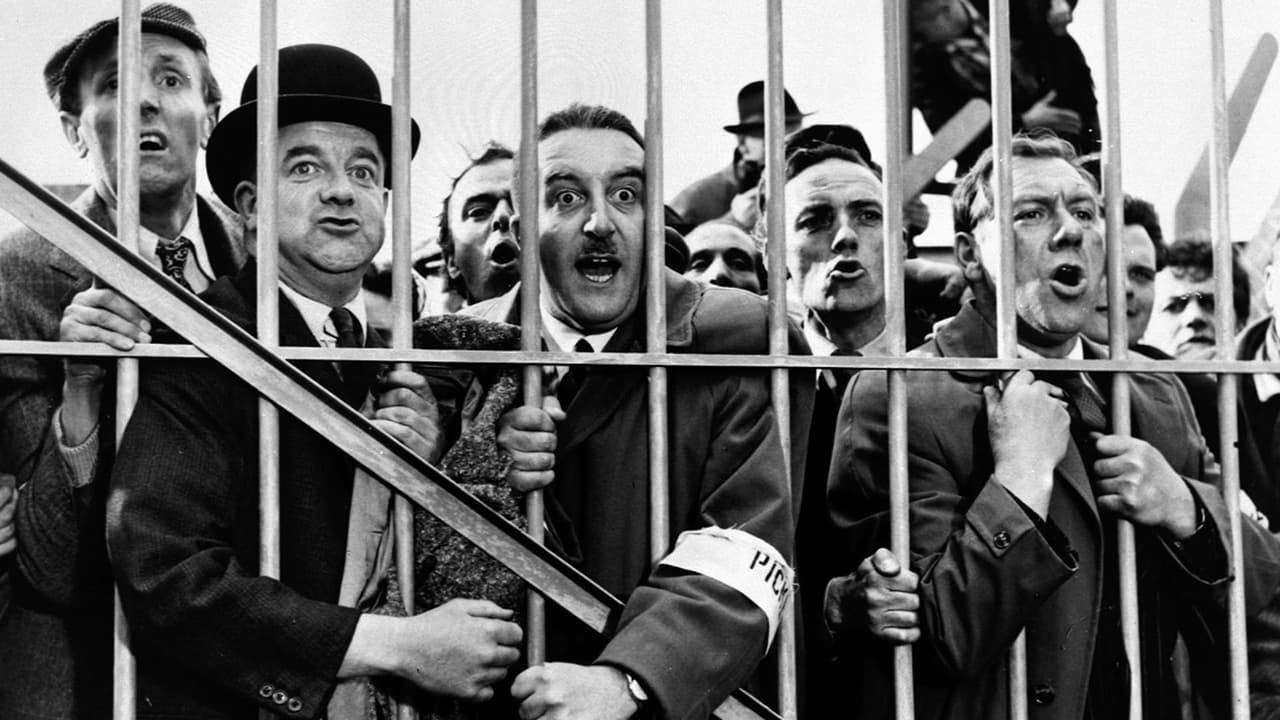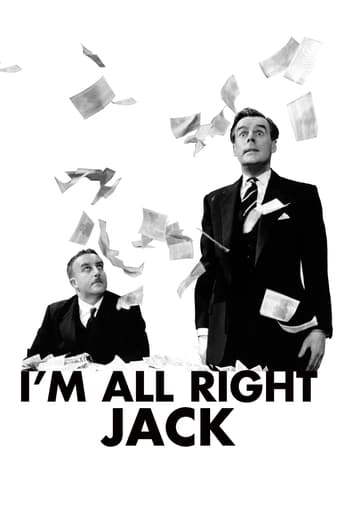Misteraser
Critics,are you kidding us
Humbersi
The first must-see film of the year.
Sammy-Jo Cervantes
There are moments that feel comical, some horrific, and some downright inspiring but the tonal shifts hardly matter as the end results come to a film that's perfect for this time.
Tyreece Hulme
One of the best movies of the year! Incredible from the beginning to the end.
jc-osms
Here's a terrific, still very British topical comedy on the subject of industrial relations between the management and the burgeoning trade union movement of the time. The catalyst for the action is posh young aristocrat Stanley Windrush, played by Iain Carmichael, who can't settle into the normal "captain of industry" jobs lined up for him by his well connected family. In the end he settles for a shop-floor job at his uncle's missiles factory, little suspecting the part he will play in proceedings which will eventually lead him to inadvertently trigger a national strike paralysing the country's manufacturing industry and even seeing himself invited onto a national "Question Time" type TV programme cast as the ordinary average decent bloke just trying to keep his head down and get his work done.The satire is razor sharp and the better for not taking sides. On the one hand we have Windrush's uncle and his dubious fat cat friend, spivvily played by Richard Attenborough with a ridiculous con-man moustache to boot, orchestrating matters, or so they think, relying on bolshie shop steward Peter Sellers and his apparently bone idle, one-speed workforce to come out on strike to facilitate their plan to skim a fortune in transfer contract fees while the workforce itself comes across as heart lazy, self-interested and completely hung up on their own arcane, counter-productive trade union rules.With an all-star British cast of familiar faces on show like Sellers, Carmichael, Attenborough plus Terry Thomas, Liz Fraser, John Le Mesurier and Irene Handl this potent material is in good hands and the comedy flows thick and fast before arriving at its most odd conclusion, reminiscent of Evelyn Waugh's "A Handful Of Dust" in its surreal abstraction with a disillusioned Windrush reluctantly joining in of all things a naturist camp. I watched in near disbelief the sight of retreating naked female behinds over the end titles!Elsewhere the comedy is less broad but still very much to the point as management and union play out their cat and mouse games in complicit disharmony. I loved the topicality of the times too, such as when Windrush's new "fan club" of young girls screams for him, his name Stan emblazoned over last month's hero Elvis.One suspects that events are only slightly exaggerated from real-life which only helps the comedy resonate all the more. This film is better than all right Jack, in my view.
mark.waltz
The old regime of English industrialism dies off as a war ends, and the new regime begins. But one must learn the business from the ground up, so what better way than to pose as a factory worker? The nephew of the head of the company goes on staff as a line worker, doubles output due to his speed, and creates disorder by simply being more efficient than the cocky vet's on the staff. Management panics as a strike is declared, and chaos ensues. The executives, advertising department, personnel management, warehouse supervisors and regular staff each get their skewering, and who better to act out all these parts than Britain's great comic stock company, which includes Ian Carmichael, Terry- Thomas, Peter Sellers, Dennis Price and Richard Attenborough, as well as a cameo by the ever popular Margaret Rutherford. As the deliciously "Dumb Dora" type, Liz Fraser steals each scene with a double dose of very noticeable attributes, simply adding a pout or a moderately funny line to pop out the viewer's eyes or gain a chuckle.While this is more a commentary on the business side of the British class system, it has certain aspects that American audiences can appreciate as well. At times, the men seem to all be speaking as if having just whiffed helium, and certain eccentricities will provide a different type of amusement for us Yanks than it would for traditional British audiences. Sellers is absolutely unrecognizable here. I easily noticed him in the opening sequence in the first of the two characters he played over his second role.
Dimitri44
Once again, from, more or less, the last decade of quite serious films, in black and white, we have what may be described as a "sleeper" similar to the American film from that period, A Face in the Crowd. Perhaps like Gulliver's Travels, on the surface we have comedy, but fundamentally, a deepest insight? A significant point that can be made is that to this day, the differences between management and employees seems to be the issue; but nobody wants to consider that maybe they are to a considerable extent, both wrong, and the actor Ian Carmichael, until the end, affable; unexpectedly and gloriously shows us, in the finale, what may very well be wrong.One way to see what is wrong is to consider the track records of economic swings throughout the century just gone by, the twentieth century. Under Franklin Roosevelt, the American economy went up, but during and after Ronald Reagan it is still going down. For example, before he shut down the Interstate Commerce Commission, semi-truck drivers were allowed adequate sleep times, were well paid, and generally courteous on the road. Since then, a disaster. In Britain, almost as predicted by this film, the media during 1984 scoffed at the coal miners, whose work conditions were otherwise shall we say, always deplorable.This whole situation, moving from the American situation to the situation, European style, is really quite simple. During the 1960's and 1970's the recovery from World War II, the European Economic Miracle took place. Then, Margaret Thatcher came along, and now it is 2013.
Cheese Hoven
Anyone who thinks Old British films are 'quaint' should watch this, one of the sharpest satires ever made. A finer film on industrial relations has never been made and I doubt could be made now in the current climate of intellectual dishonesty. The film makers do not take the easy route in blaming one party or another but holds them all up to scrutiny. The bosses, the unionists, the clients are all (rightly) shown as self motivated and cynical. Fred Kite is a character very familiar even in modern British politics (Bob Crowe still thinks and talks very much like him), with his hilariously Utopian views on the impoverished horror state of the USSR "fields of corn and ballet in the evening". The bunkum of the bosses is hardly less true and delightful to behold.

